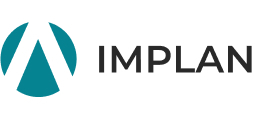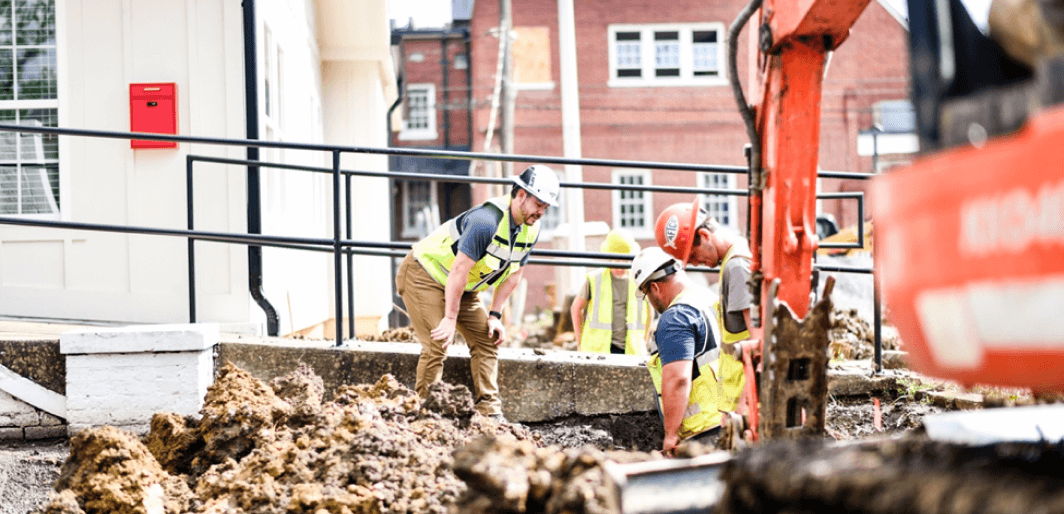Minority & Women-Owned Business with IMPLAN & EPB
Measuring the Economic Impact of Minority- & Women-Owned Businesses
Introduction
Minority- and women-owned businesses (MWOBs) are essential in the economy. Showing their worth is crucial to ensure they receive the support they need to flourish. Data from the Annual Business Survey Characteristics of Businesses of the Census Bureau estimates that of all the firms in the United States, 22% are owned by women and 18% are owned by minorities. This represents 2.3M companies with almost 124M employees and annual sales of $30B.1 As these businesses are growing, continued support for women and minority owned firms is crucial to the economy because they will continue to not only generate jobs, but also help in lifting up communities and decreasing the wage gap.
In 2023, EPB set out to show the economic value of these companies.
EPB is a municipal electric distribution and broadband utility serving 190,000 electric customers in a 600-square-mile service territory covering seven counties in East Tennessee and North Georgia, including the City of Chattanooga. Founded in 1935, EPB’s mission is to enhance customers’ quality of life across its service territory, which includes economic development efforts to support the area’s workforce.
EPB is an innovator, expanding the capabilities of broadband service. In 2010, EPB began offering the nation’s first community-wide gigabit speed internet to all homes and businesses in its service territory, earning the city the moniker “Gig City.” To keep Chattanooga on the cutting edge, EPB launched the nation’s first community-wide 25 gigabits per second symmetrical internet service in 2022.
Supplier diversity programs utilize economic impact reports to better understand the impact of diverse spending in the economy. EPB’s dedicated effort to identify and utilize MWOBs demonstrates the organization’s commitment to improving the community it serves.
Quantifying Support for Minority- and Women-Owned Businesses
EPB has a long history of support for MWOBs, and has spent more than $93M with diverse business owners since 2001. Through a dedicated effort, EPB identifies MWOBs and works closely with them to understand their ownership and operation, as well as opportunities available. To be classified as an MWOB, the business must be majority (at least 51%) owned and operated by an individual that is a minority, a woman, a veteran, or disabled.
EPB’s MWOB program is built around three core pillars: Economic Development, Job Creation, and Generational Wealth. To support these pillars, EPB’s dedicated MWOB team is focused on fostering partnerships with local and diverse businesses through engagement and training initiatives. The MWOB program also plays a vital role in educating and supporting prospective businesses owners through these processes, recognizing the administrative challenges that small businesses without dedicated staff for business development may face.
EPB regularly hosts facility tours for prospective suppliers, contractors, and community partners as part of its outreach efforts. These tours are conducted during on-site discovery calls and demos, providing valuable insights into its operations and purchasing processes. Additionally, EPB extends tours to community partners to enhance their understanding of its business model and procurement landscape, particularly to assist small companies interested in working with them. Throughout these tours, participants can engage with various business units, gaining an understanding of their functions and the criteria each business considers when selecting contractors and suppliers.
Twice a year, EPB partners with the City of Chattanooga at their Purchasing Expo. These expos, along with Business Matchmaker events, provide a platform for small and diverse businesses to connect with purchasing agents and present their products and capabilities. Attendees can network and gain insights into potential business opportunities that align with their needs. Both the Purchasing and MWOB teams participate in these events to engage with prospective suppliers and contractors. Workshops covering various topics are also offered during these events to aid in the development of small businesses. Additionally, the MWOB program extends its reach regionally to connect with small and diverse companies that may offer services not readily available locally.
Showing the Impact
Over the last six years, EPB invested an average of $7M per year with MWOBs, a total of $42.7M. EPB used IMPLAN to examine the economic impact of 95 MWOBs covering 25 distinct industries from architectural, engineering, and related services to computer systems design services. Their footprint included 30 metropolitan statistical areas (MSA)and they analyzed operations between 2018 and 2023. The Chattanooga TN-GA MSA, home to EPB, captured 58% of the total output. The next largest areas in terms of investment were Memphis, TN-MS-AR and Austin-Round Rock-Georgetown, TX.
EPB then developed individual IMPLAN models for each year of activity. This included determining the appropriate industry for each MWOB in IMPLAN’s 546 industry classification system. EPB associated each of the 95 MWOBs it supports to an industry classification code and used IMPLAN’s North American Industry Classification System (NAICS) bridge to represent the most accurate industry in all 30 metropolitan statistical areas. EPB then analyzed each MSA to provide a better understanding of its MWOB efforts across all MSAs.
EPB’s investments with MWOB over the past six years resulted in a total output of $63.6M. The Chattanooga TN-GA MSA captured $37M of the total output. Over the past six years, EPB’s MWOB program supported an average of 39 jobs in the Chattanooga region and 64 jobs nationally across 30 MSA regions.
Next Steps
EPB’s support of MWOBs provides benefits across the United States. The total economic impact of this activity is likely understated in this case study, as individual MWOB activity and changes due to contracting with EPB are not captured. Each of the 95 MWOBs in this study may have additional impacts related to hiring needs that support contracting, changes to business structure or the capture of additional contracts due to success with EPB.
This is EPB’s inaugural study of MWOB contracting. EPB plans to continue researching and developing methods to estimate the impact of MWOB investments across local, state, and national economies. Additions to this framework could include analysis of individual MWOB entities to understand the impact of EPB support on capturing additional contracts and direct hiring needs associated with contracts with EPB.
EPB’s approach included individual analysis of 30 metro areas. Future studies will consider state-level impacts for regions with more MWOB activity. Understanding the value of diverse spend gives insight into the dynamics of local communities. This effort looks to prove the value of EPB’s MWOB efforts.
MWOBs are an essential part of the local and U.S. economy. These businesses uplift communities through enterprise creation and employment. Organizations supporting MWOBs can discern tangible, immediate benefits over the short term, with the long-range impact and generational wealth created in these communities measured over a longer period.
This model provides other organizations with a framework for understanding methods to measure the impact of their support of MWOBs nationally and in their local region. IMPLAN is essential to understand the impact of diverse spending on the economy. The accessibility of IMPLAN software and industry bridge data is also necessary in the classification of MWOBs. These tools allow organizations to determine their impact on these essential entities in our economy.
References
1- 2021: ECNSVY Annual Business Survey Characteristics of Businesses https://data.census.gov/table/ABSCB2021.AB2100CSCB01?q=ab2100cscb01
2- https://www.greenamerica.org/your-green-life/6-reasons-support-black-owned-businesses; https://www.brookings.edu/articles/black-owned-businesses-in-u-s-cities-the-challenges-solutions-and-opportunities-for-prosperity/; https://www.jumpstartinc.org/celebrating-womens-history-month-the-importance-of-supporting-women-owned-businesses/










